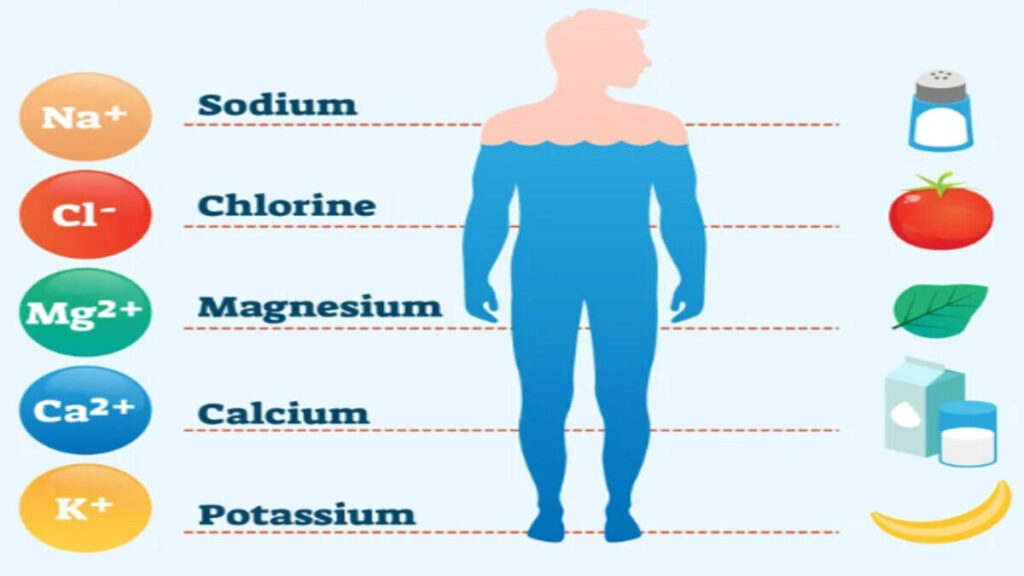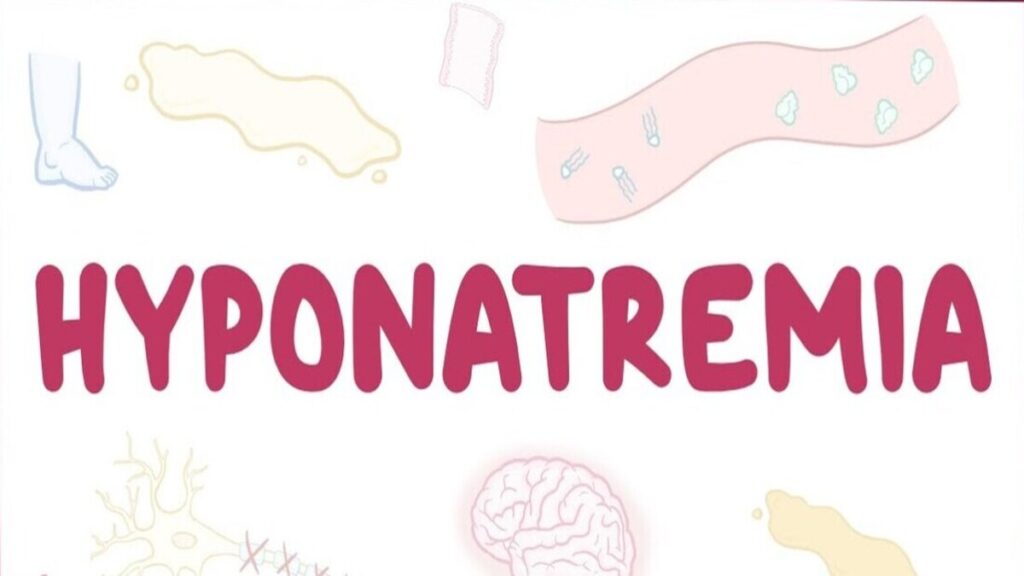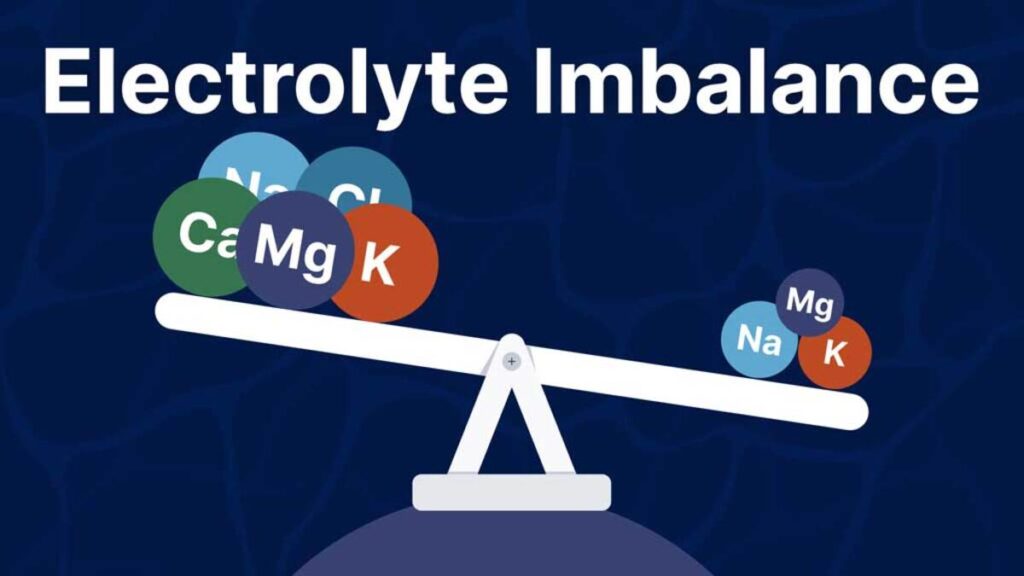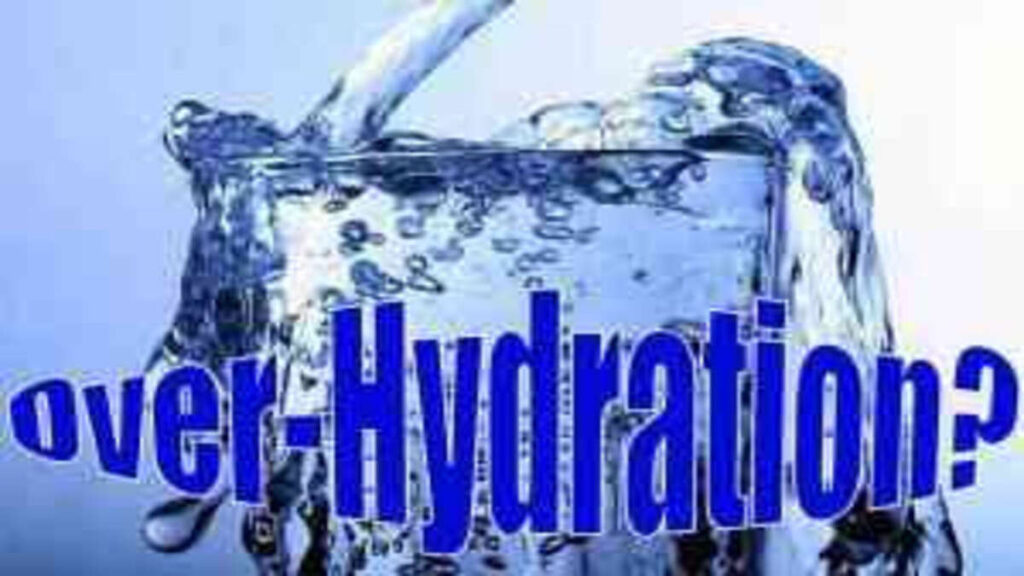
Ensuring proper hydration is fundamental for sustaining overall health and well-being. Water serves as a cornerstone of bodily function, facilitating processes such as nutrient transportation, temperature regulation, and waste elimination.
However, maintaining a delicate balance is paramount, as excessive water intake can lead to a condition known as overhydration, with potential implications for electrolyte equilibrium.
In this comprehensive exploration, we delve into the intricacies of hydration, shedding light on the signs of overhydration and electrolyte imbalance, and offering insights into strategies for maintaining optimal fluid levels.
The Role of Electrolytes in the Body
Electrolytes, encompassing minerals such as sodium, potassium, and magnesium, play pivotal roles in supporting various physiological functions.

These charged particles are instrumental in maintaining fluid balance, transmitting nerve signals, and regulating muscle contractions and heart rhythm. When electrolyte levels become imbalanced, disruptions in these vital processes can occur, giving rise to an array of health complications.
Understanding Hyponatremia
Hyponatremia, characterized by abnormally low sodium concentrations in the blood, represents a potential consequence of overhydration.

Sean Langan, an esteemed researcher at the University of Connecticut’s Korey Stringer Institute, underlines the severity of hyponatremia, particularly within the athletic community.
Prolonged, low-intensity exercise coupled with excessive water consumption can precipitate this condition, posing grave risks, including neurological impairment and even death.
Preventing Electrolyte Imbalances
Mitigating the risk of electrolyte imbalances necessitates proactive measures, especially during strenuous physical activity.

Athletes are encouraged to supplement their hydration regimen with sports drinks or electrolyte-enhanced beverages, which offer a balanced blend of fluids and essential minerals.
By replenishing electrolytes lost through sweat, individuals can optimize performance, minimize fatigue, and safeguard against hyponatremia.
ALSO READ: Tennessee Elementary School Students and Teacher Hospitalized After Dry Ice Science Experiment
Hydration Beyond Exercise
While electrolyte imbalances are commonly associated with athletic endeavors, they can arise in various contexts beyond exercise.

Factors such as excessive alcohol consumption, certain medications, and underlying health conditions may contribute to electrolyte disturbances, underscoring the importance of vigilance in everyday hydration practices.
Monitoring fluid intake and incorporating electrolyte-rich foods into the diet can help maintain equilibrium and promote overall wellness.
6 Key Indicators for Identifying Signs of Overhydration
Recognizing the signs of overhydration is essential for preserving health and mitigating associated risks.

Here are six telltale indicators that may signal excessive water intake and potential electrolyte imbalance, warranting attention and intervention.
Drinking Water Excessively, Regardless of Thirst: Compulsive water consumption, irrespective of thirst cues, may indicate overhydration and should prompt a reevaluation of hydration habits. While adequate fluid intake is crucial, it’s essential to strike a balance and refrain from excessive drinking.
POLL—Do You Support a Single-Payer Healthcare System (Medicare for All)?
Clear Urine Color: Urine color serves as a valuable indicator of hydration status, with pale-yellow hues suggesting optimal fluid balance. Conversely, excessively clear urine may signal overhydration, prompting adjustments to fluid intake to prevent electrolyte disturbances.

Headaches and Nausea: Hyponatremia-induced headaches and nausea can arise from dilutional reductions in blood sodium levels. These symptoms highlight the importance of maintaining electrolyte equilibrium and avoiding excessive water intake, particularly during prolonged exertion.
Frequent Urination, Especially at Night: Excessive urination, particularly nocturnal, may signify overhydration and impaired kidney function. Monitoring urinary patterns can provide insights into fluid balance and help mitigate the risk of electrolyte imbalances.
ALSO READ: Hospital Worker Fired for Refusing Flu Vaccine Mandate Wins $45,000 Settlement

Muscle Weakness and Shaking: Muscle weakness, tremors, or spasms may manifest as a result of electrolyte disturbances stemming from overhydration.
Addressing fluid intake and ensuring adequate electrolyte replenishment is crucial for preserving muscle function and preventing associated symptoms.
Fatigue and Confusion: Chronic fatigue and cognitive fog may ensue from electrolyte imbalances precipitated by overhydration.
Prioritizing balanced hydration practices and attending to signs of electrolyte disruption is essential for sustaining energy levels and mental clarity.
Striking the Right Balance: Achieving optimal hydration involves navigating a delicate equilibrium, wherein sufficient fluid intake meets the body’s needs without tipping into excess.

By heeding the body’s cues, incorporating electrolyte-rich beverages when necessary, and maintaining mindfulness in hydration practices, individuals can safeguard against overhydration and electrolyte imbalances.
Whether engaging in physical activity or navigating daily routines, prioritizing balanced hydration fosters vitality, resilience, and overall well-being.
You Might Also Like:
Biden Suffers Blow As Supreme Court Allows Texas To Arrest Illegal Migrants From the Southern Border
Chicago Enforces Controversial Policy, Evicts Migrants From Shelters
Battleship USS Texas Returns to the Water After Months of Drystock Restoration
Sen. Elizabeth Warren Calls Out Student Loan Company CEO, Invites Him to Testify Before Congress
Liz Cheney Slams Donald Trump for Attacking Capitol Riot Investigation
